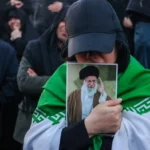
Official World War II stories elaborated by the Western powers are based on omissions
The official stories of World War II, elaborated by the Western powers, are built on a basis of deliberate omissions. They usually mark the beginning of the war with the Nazi invasion of Poland in 1939 or the attack on Pearl Harbor in 1941.
This chronological trick is a deep political act that frames conflict as an essentially European subject and erases an entire decade of war, fascism and resistance they had already taken over Asia.
One of the starting points of the anti -fascist World War can be tracked until September 18, 1931. That day, Japan Imperial staged a fake flag explosion near Mukden (now Shenyang) in northeastern China. This episode, known as the 9.18 incident, was the pretext for the invasion of Manchuria, marking the beginning of a 14 -year brutal war against the Chinese people.
Also read:
Rapporteur of the Amnesty Project discards Bolsonaro
Caixa Regisa Historical Balance and increases pressure on profits
Criminals invade Rio hospital in search of a witness
This historical reinterpretation was the central objective of a recent online seminar organized by Tricontinental Asia and the Southern Global Academic Forum, titled “September 18, 1931: remembering the origins of war, fascism and resistance in Asia”which sought to revisit this often ignored point of World War II and centralize the experiences of Asian peoples and their resistance struggles.
The scale of historical erasure is terrifying. While Western narratives highlight their own sacrifices, they consistently demot the immense human cost supported by other peoples. The 27 million Soviets who died resisting Nazism are already little mentioned, but the nearly 24 million dead Chinese resisting Japanese expansion are relegated to a footnote.
Recent research reveals that at least 8.7 million colonial subjects, mostly in Asia, died during the war-ten times the total combined of Anglo-American deaths. Insisting in 1931 as the beginning of the war is, therefore, a fundamental act of decolonization of history, shifting the center of Europe’s conflict to Asia and revealing as, for years, the Western powers supported the aggressors, fearing communism than fascism.
Resistance voices
For the Chinese people, war is a living memory. As Professor Lu Xinyu, from the East China Normal University, stated hard, during the seminar Every inch of China – the mountains and the rivers – keeps a history of the resistance war that constitutes our national memory. Born shortly after the start of the large -scale invasion in 1937, Lu’s mother – whose name Yong Ping means “eternal peace” – was almost still killed in the crib by a Japanese bomb.
According to Lu, this collective experience shaped Mao Zedong’s strategy of a “war of all the people”, uniting the army and the masses in an “invisible” force of popular resistance. Lasting peace, she argues, is a revolutionary process. Lu told the story of a Japanese war criminal, a man with university education transformed into “demon” by Japanese imperial military training, who committed horrible atrocities.
In a prisoner field in China, he was not simply punished, but educated with the works of Mao Zedong, who “shattered his understanding” of the war. He dedicated the rest of his long life to the antiguera movement, convinced that seeking “eternal peace is the sole purpose of the rest of my life.”
The Korean peninsula suffered one of the most brutal experiences of Japanese colonial dominance. Dae-Han Song, from the South Korean International Strategy Center, argued that this context is essential. “Want to be like a western imperialist power?” Song asks. The answer is yes. To avoid the fate of being colonized as its neighbors, Japan chose to become a colonizing force.
Japanese modernization was a reaction to the western canlerian diplomacy, and the West actively encouraged its colonial ambitions, with the US giving Japan a “green light to colonize South Korea in exchange for the US colonizing the Philippines” in a secret agreement of 1905.
The colonization that followed was wild: forced cultural assimilation, economic exploitation, forced labor of more than 1 million Koreans and the kidnapping of hundreds of thousands of “women of comfort” as sex slaves.
The end of the war did not bring justice. The US, fearing communism, repayed the Korean elites who had collaborated with the Japanese, creating a “up-to-end world in which the villain became a hero and the hero became a villain.” This injustice was formalized by the 1951 St. Francis Treaty of Peace, which excluded the main victims and taxpayers of war – such as the Soviet Union and China – and allowed Japan to escape accountability, consolidating the country as an anti -communist bastion and militarily occupied in the region.
In the Philippines, the war was also an ideological struggle between two opposite internationalisms. Ramon Guillermo, from the University of Filipinas, traced the birth of a true proletarian internationalism, forged by Filipine and Chinese communists.
The initial Philippine Labor Movement was marked by racist and antichine chauvinism, encouraged by the US trade union federations. The turning point came when radicals led by communists broke and formed a new federation that welcomed their Chinese comrades, creating a Filipino-Chinese front that launched the foundations for the Filippine Communist Party (PCP).
This solidarity proved to be vital when the PCP organized the Hukbalahap, the most effective guerrilla resistance against the Japanese, trained in part by veteran Chinese communists. This class internationalism contrasted strongly with the “Coprosperity Sphere of Great East Asia” of Japan, an “pseudo-internationalist, ultranational and racist idea” that sought cynically replacing Western colonialism with Japanese imperialism under the disguise of “Asia for Asian”.
The moral clarity of the narrative of the “just war” collapses when seen from the colonized world. Vijay Prashad, director of the tricontinental institute, presented a striking accusation of what he called the “colonial burnt offering” perpetrated by the allies. He argued that the hunger of Bengal (1943-1944), which killed 3 to 4 million Indians, was a man-made atrocity, a direct consequence of British imperial politics.
To support its war effort, the Churchill government systematically diverted food from India and implemented policies that led to predictable and avoidable mass hunger. As you insist on to, these millions of the dead were “war victims, all of them.”
This was accompanied by economic withdrawals and brutal repression of India’s independence movement. Official statistics of dead Indian soldiers are a gross distortion, ignoring the dead by the British army itself. For the colonized peoples, the “anti -fascist world war” was inseparable from the “anti -colonial world war.”
An unfinished struggle for memory, peace and justice
The history of anti -fascist World War is contested terrain. The western dominant narrative is a political weapon used to legitimize the imperial order of the postwar and obscure the ongoing struggles of the global south.
Recovering the true history of war – a war that began in Asia in 1931 – is an essential task of our time, especially in an era of resurgence of far -right forces, growing militarization and a dangerous cold war climate against China and its allies.
“Does today’s West be so interested in the anti -fascist struggle because he sacrificed so little to defeat fascism?” He provocatively asked Vijay Prashad. “And is that why the Chinese and others are so interested in anti-fascism? Why do we sacrifice so much to defeat it?” The memory of this sacrifice feeds a deep commitment to peace.
As Chinese President Xi Jinping proclaimed in his speech in celebrating the 80th anniversary of the Chinese people’s resistance war against Japanese and Anti -Fascist World War: “Force can rule the moment, but justice prevails forever… We must always commit to the path of Pacific Development… and work together to build a community with a shared future for humanity.” This is the vision that animates the struggles of the Global South Peoples. The final and lasting message is of revolutionary hope, a conviction articulated by Professor Lu Xinyu: “Justice will prevail, peace will prevail and the people will prevail.”
It is a promise captured in the solemn words of the Corean poet anticolonial Yun Dong-JE, who died in a Japanese prison just before the end of the war:
With a heart that sings the stars,
I will love all the things that die.
And I will follow the way
which was given to me. This night, again, the wind brushes the stars.
By Tings Chak, co-coordinator of Asia at the Tricontinental Institute of Social Research, editor of Wenhua Zongheng: Journal of Contemporary Chinese Thought and PhD student at Tsinghua University in Beijing, China.
Source: https://www.ocafezinho.com/2025/09/19/a-guerra-que-comecou-na-asia-revisitando-as-raizes-da-guerra-mundial-antifascista/

